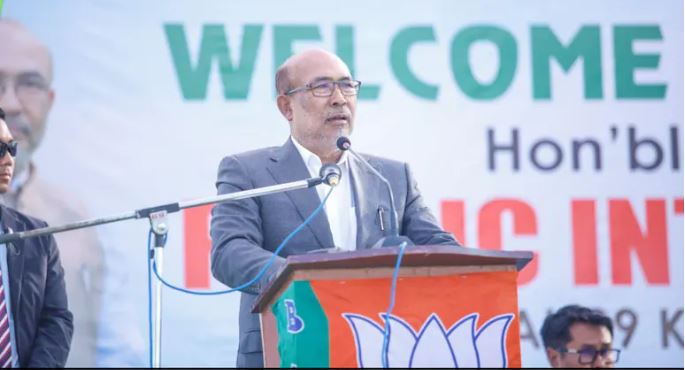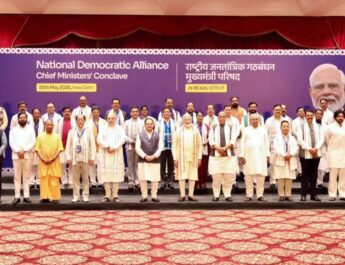Imphal: On Wednesday, former Manipur Chief Minister N Biren Singh stated that since the 1960s, thousands of refugees have settled in the state with the awareness of the authorities, and these individuals received support for their rehabilitation.
Mr. Singh, who stepped down as chief minister in February, leading to the imposition of President’s Rule in the troubled state, expressed concern about the fate of these families and questioned whether they had been included in the electoral rolls.
His remarks, shared in an extensive post on X, followed a day after BJP MLAs in Manipur called for a “review” of the 2001 Census and the implementation of the National Register of Citizens (NRC) prior to any delimitation process in the state.
During his tenure as chief minister, Singh and the central government attributed the ethnic violence in the state, which has resulted in over 250 fatalities since May 2023, largely to illegal immigrants from Myanmar.
“Official records indicate that even before Manipur achieved full statehood, thousands of refugees were settled here with the knowledge of the authorities at that time. As early as the late 1960s and early 1970s, documents show that over 1,500 families had crossed over and received assistance for their rehabilitation,” Mr. Singh noted in his post.
Manipur was designated as a Union Territory on November 1, 1956, and attained full statehood on January 21, 1972.
Mr. Singh posed several questions: “What has become of those families? How were they integrated? How many generations have emerged since then? Were they ultimately granted full rights? Were they included in the electoral rolls?” He emphasized that these inquiries have not been adequately addressed in public discourse, and the issue has remained largely unexamined, even as the demographic landscape of the state has evolved over the years, according to the BJP leader.
Paokai Haokip, who was a Member of Parliament representing Manipur, addressed a letter to KC Pant, the Minister of State for Home Affairs, highlighting the existence of over 1,500 refugee families that had settled in Manipur by 1967, as noted by Mr. Singh in his post, which included a copy of the correspondence.
“The letter is just one of many that illustrate the deep-rooted and persistent nature of this issue,” remarked the former chief minister.
Questioning whether Manipur has been “a dumping ground for refugees from the outset,” Singh emphasized the necessity of examining whether appropriate legal frameworks were established to maintain the refugee status of these individuals.
“Did they receive benefits intended for indigenous populations? These are significant issues that impact our identity, social equilibrium, and the trajectory of our society,” he stated.
Mr. Singh asserted that it is crucial to revisit this matter, not to assign blame, but to comprehend the events that transpired, consider their implications, and devise a fair and equitable way forward, as the ramifications of this issue are extensive and will influence the state’s current and future landscape.
“Drawing from my experience in active politics and holding high office, I recognize the responsibility that comes with representing the people. It is easy to follow popular opinion, but true accountability lies in adhering to the facts. We owe it to our constituents to be honest, uphold their dignity, and adopt a forward-thinking approach. This is the essence of being a statesman, rather than merely a politician,” he concluded.




